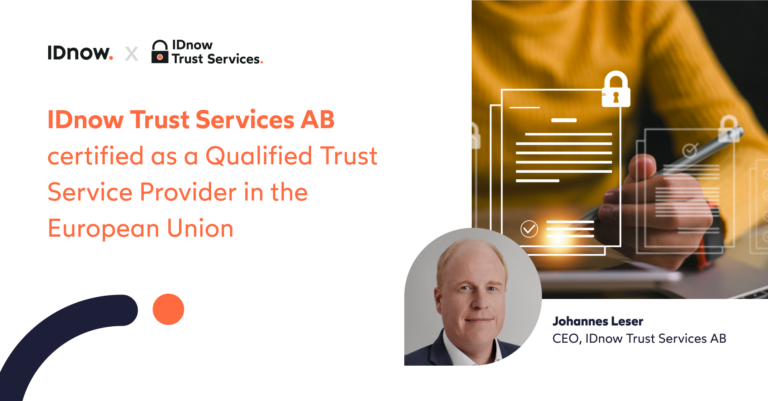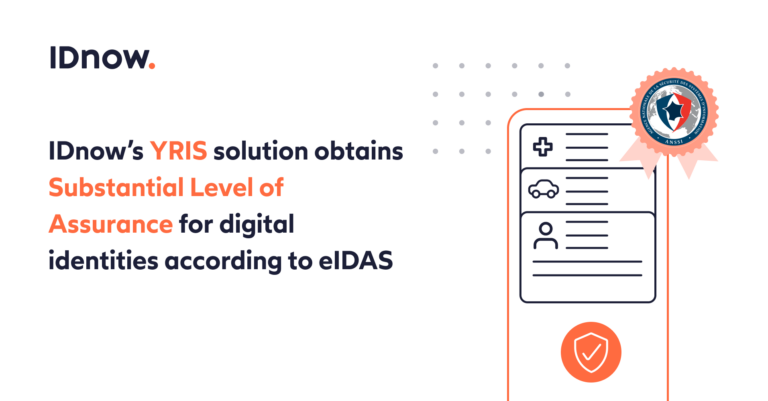Digital identity pilot implementation to start in Q1 2024: Kick-off with 2,700 citizens from Austria, Romania and Spain to test wallet solution
Rennes/Munich, March 12, 2024 – IDnow, a leading identity verification platform provider in Europe, is pleased to announce the start of the pilot implementation phase for the EU-wide SOTERIA research project which aims to develop a user-centric, citizen-driven tool to help European citizens manage their personal data.
The ultimate goal of the project is to combine the creation of a digital identity to access online services with a user-friendly platform that allows for secure and easy data management, while increasing citizens’ awareness of their personal data. “SOTERIA is a large scale demonstrator that shows how a digital identity wallet can enable citizens to protect and control their personal data while making access to online services easier than ever before,” says Montaser Awal, Director of Research at IDnow and coordinator of the SOTERIA project.
E-voting, e-exam, and e-health field tests in three EU countries
Launched in October 2021, the SOTERIA project is nearing the final pilot implementation and testing phase of the identity wallet solution, which was developed by IDnow and the other SOTERIA partners as part of the project. The wallet will be integrated into the platforms of SCYTL, IPCenter and Biobizkaia Health Research Institute (with the support of INFOCONS association) in Romania, Austria and Spain, respectively, for use cases in e-voting, e-exam, and e-health.
This month, the three pilot use cases will kick off with field tests consisting of 900 citizens each from Austria, Romania and Spain. For the e-voting and e-exam use cases, participants will authenticate themselves through the SOTERIA app and test the onboarding, which IDnow provides via proven identity verification methods. These include several new security checks developed within the project, reinforcing the fraud detection capability of the solution further. Then the citizens will go through the voting or exam process, and at the end, have the choice to add their voting receipt or their exam results to their wallet. For the e-health trial, citizens will have the possibility to add their health data to their wallet, while choosing the type of data and documents they want to store. This will allow them to have all important health information about themselves in their pockets.
The benefits of this testing phase are twofold: The 2,700 citizens will test the authentication process and the access to an online service with the help of a stored digital identity; while the wallet’s capability to store documents and attributes (e.g., e-voting receipt, e-exam results, e-health data) in the form of verifiable credentials will also be tested. Afterwards, the citizens’ feedback will be analyzed and evaluated by AUDENCIA and will be used to improve the platform. These findings can then inform the further development of digital identity wallets under the upcoming eIDAS2 (electronic Identification, Authentication and Trust Services) regulation.
Awal adds: “Thanks to the findings in the use cases with citizens, SOTERIA will help strengthen security, privacy, and personal data protection across all layers of the digital economy, and will help pave the way for a trustworthy EU digital environment. We are very proud that the R&D team at IDnow gets to lead this ambitious consortium of 13 European partners. It is testament to our innovative spirit and curiosity that forms part of our DNA at IDnow.”
About SOTERIA
The SOTERIA consortium consists of 13 partners from eight EU countries, composed of small medium enterprises (ERDYN), large enterprises (IDnow, SCYTL, IPCenter.at), universities and research centers (Audencia, KU Leuven, CVC, IDIAP, Inria, Biocruces Bizkaia) and non-for-profit organizations (INFOCONS, STELAR, NORIA Onlus). The project was written and submitted to the European Union in August 2020, following a call for projects by the European Commission on the topics of digital security and privacy for citizens. The SOTERIA project has received funding from the European Union’s Horizon 2020 research and innovation program under grant agreement No 101018342. More information on the project can be found at https://www.soteria-h2020.eu/.[1]
[1] This content reflects only the author’s view. The European Agency is not responsible for any use that may be made of the information it contains.



